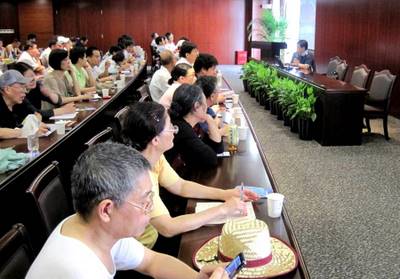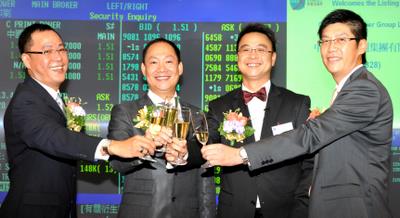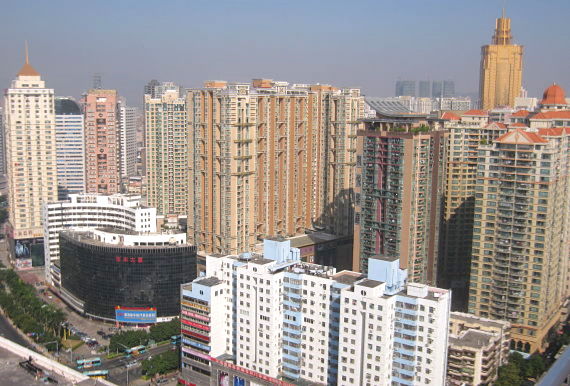
Qi Bin, the oft-quoted director general of the research center at the China Securities Regulatory Commission – the country’s bourse watchdog – said three principles have kept the country’s capital markets oftentimes the envy of the world over the past two decades.
And a Chinese language piece in Sinafinance cited him as saying that three new guidelines were needed to keep the bourses stable and vibrant going forward, just as the country marks two decades since the launch of the Shanghai Stock Exchange.
He said the primary principle giving guidance and direction to the markets these past 20 years has been the ability of the bourses to serve the “real economy,” responding and reacting to both on-the-ground market conditions as wall as moving in tandem with the actions of the bulk of investors.
“The stock market cannot operate efficiently or fairly without an objective. If there is rudderless blind expansion or activity in the market, then financial bubbles and crises will inevitably be the result. Therefore, the bourses must reflect the actual economic conditions at the time and be subject to the push-pull of the supply and demand calculus just like everything else,” Mr. Qi said.
In addition, the markets have generally benefited from built-in protections... both for shareholders, and against crises.
The CSRC’s proscription on new listings in the earlier part of the last decade was a drastic but ultimately successful way to help turn around the sputtering A- and B-share markets at the time.

“If the financial markets are operating smoothly and efficiently, this can only benefit the overall economy. However, if there is instability or regulatory inadequacy in the former, then the economy faces a much higher risk of a disastrous disruption.”
Also, he said that the PRC’s two stock markets in Shanghai and Shenzhen have generally benefited from gradual marketization, regulatory standardization and internationalization.
Market-oriented reforms, particularly the mass conversion of lumbering and behemoth state-owned enterprises (SOEs) into publicly listed entities a few years ago, was pointed to as a particularly successful policy to kick start the market and bring in a massive infusion of new listcos.
He said this has helped the Shanghai Stock Exchange, Mainland China’s biggest bourse, grow to become today the world’s fifth largest stock exchange by market capitalization at 2.7 trillion usd as of end-2010.
“Marketization has helped domestic bourses come much closer to reaching their full potential.”
He said that his employer – the CSRC – had also been tireless in its efforts to implement and execute an “effective market discipline regime” over the countries capital market activity.

“This has often been a delicate balancing act as regulators need to keep in mind many often incongruous factors such as the interests of companies, investors, the nation’s economy and overall social stability. Therefore, in monitoring the markets, the country has practiced a more progressive policy with distinctly ‘Chinese characteristics’.”
Respect and adherence to the rule of law also played a critical part in keeping the markets above water these past two decades.
“The most important duty of the CSRC is to protect the rights of capital market investors through the establishment of an equitable and transparent trading platform, while maintaining a close balance among various interests at play,” Mr. Qi said.
Domestic markets have also been “going global,” both in terms of attracting foreign capital via qualified foreign institutional investor (QFII) quotas launched last decade as well as looking abroad for marketing and investment opportunities.
“However, we have seen overseas investment banks such as Goldman Sachs and Merrill Lynch become truly global players, and their reach highlights the gap with PRC peers as well as the need to develop more international players right here at home.”
Looking ahead
While recognizing the achievements of the PRC’s capital markets these past two decades, Mr. Qi said that three new innovations were needed to promote growth and stability on the country’s bourses going forward.

“First, China must put a greater emphasis on innovation in its economy. To this end, I am confident that ChiNext (the country’s nearly two-year old equivalent of the Nasdaq) is an ideal springboard to launch innovative enterprises looking to raise capital. Although it suffered a rocky start and still faces many problems, I believe it will emerge stronger and healthier in the end.”
Secondly, he said that Shanghai – China’s biggest city and home to its largest bourse – must tirelessly push forward to transform itself into a truly global financial center.
“In 1913, New York overtook London as the world’s top financial center. That same year, the US overtook the UK to become the world’s biggest economy. Parallels to China can be made. In addition, China has relied heavily on the eastern maritime provinces for most growth these past decades, but going forward more attention must be given to the hinterlands and the western regions.”
Finally, he said that the country must continue building a “harmonious society” – an oft-repeated phrase which generally means manageable inflation, stable employment, and a gradual reduction in the gap between rich and poor.
“As such, I believe that investors with a stake in China’s economy today will be very well off ten years from now.”
See also:
PRC Investors In Frenzied Snap Up Of HK Penny Stocks?
HONG KONG: Opportunities Aplenty For Single-Digit PE Plays







